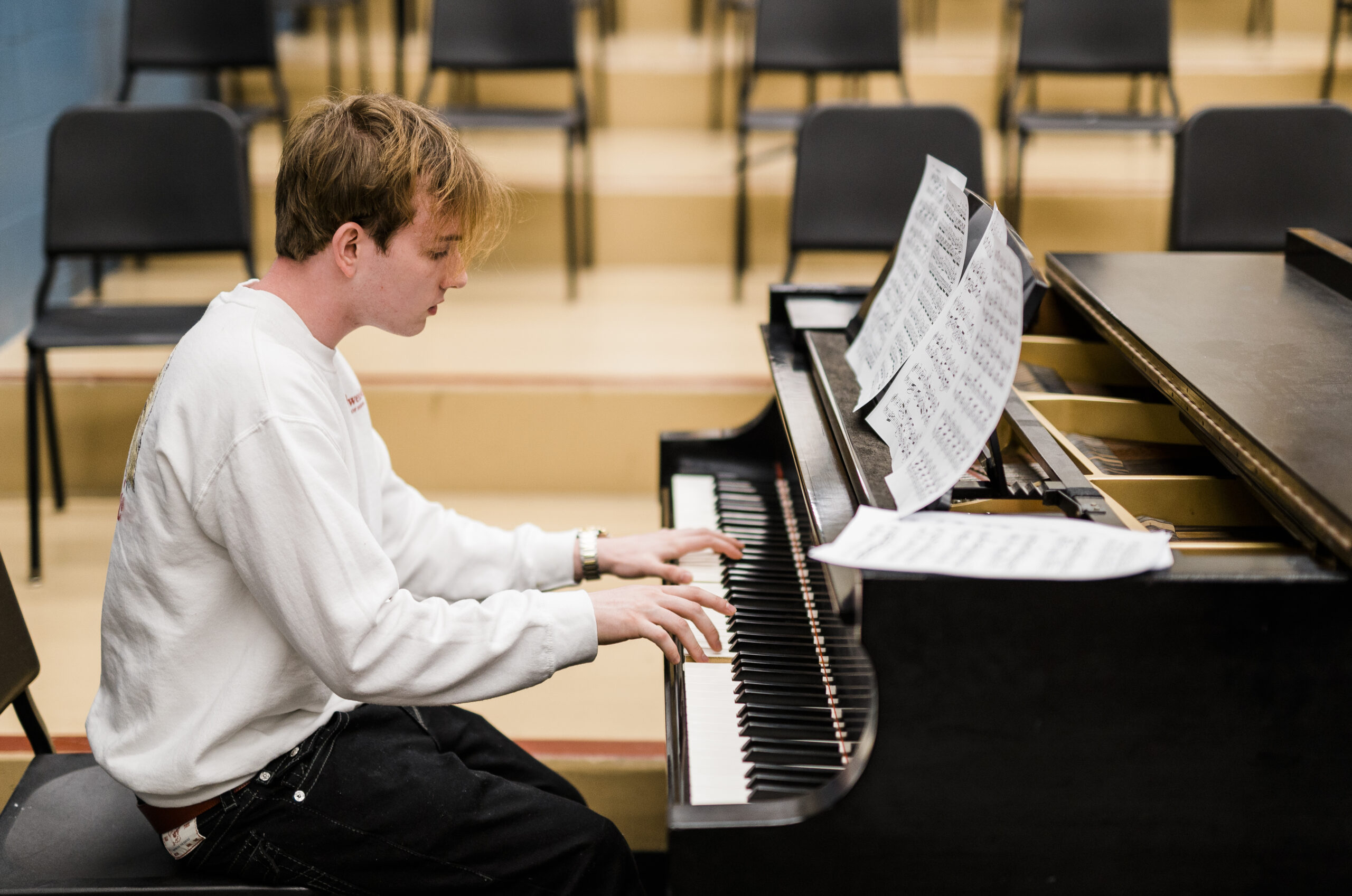Lynnfield High junior Max Faleyev has played classical piano on stages across the country. He won first place at the American Fine Arts Festival at Carnegie Hall in New York, and later competed against pianists from across the world at the Chopin International Competition in Hartford.
As Faleyev sat behind the grand piano in his school’s band room to play Beethoven’s Sonata No. 17 in D minor, his fingers danced on the keys to the tune’s speeding tempo without missing a note. He abruptly stopped playing, confessing that he had lost his place in the sheet music and was going “off of memory.”
When asked what it was like when he first sat down at a piano bench and tapped the keys, Faleyev said he couldn’t remember.
“I don’t remember the first time, I was still pretty little, but I remember a lot of early moments of playing — I’ve always really enjoyed it,” Faleyev said. “I would constantly play the piano in my free time when I was alone, I always preferred playing alone to playing in front of a teacher.”
Faleyev is the son of Belarusian immigrants. He said his mother, Svetlana, always wanted to learn how to play piano but couldn’t afford to. When Faleyev was six years old, she signed him up for piano lessons — in Russian — with Valerie Henkin, a Swampscott-based teacher.
By the time Faleyev was in the fifth grade, hours of daily practice brought him to compete against pianists from across the country at Carnegie Hall, where he placed first.
“I was extremely nervous at first but I ended up playing well and after I finished, it was really exciting,” he said.
The next year, Faleyev performed at the 50th Annual Bay State Contest, where his performances of Beethoven’s Sonata No.1 in F minor and Chopin’s Polonaise in E Flat minor landed him third place out of 10 contestants in his category.
For Faleyev, classical piano is a mixture of discipline and passion. He said he spent more than six months mastering the most difficult piece he can play, Nikolai Rimsky-Korsakov’s “The Flight of the Bumblebee.” The hours of practice, he said, are always worth it when he can play a piece well enough to immerse himself in it.
“It was hard sometimes — sometimes I really didn’t feel like doing it. You just have to sit down and practice for an hour a day. And then from there, it’s just muscle memory and you add emotion so that it sounds good,” Faleyev said. “When you’re really getting into it — it’s not always like this — but sometimes any type of stress or anything you’re thinking about just goes away, and you’re all there in the music.”
Along with his encyclopedic knowledge of classical music, Faleyev said he learns the occasional pop song to play for his friends, and enjoys an eclectic range of music from jazz to soul.
Faleyev said he hopes to study business or finance at the University of Massachusetts when he graduates. He is not competing in piano competitions during high school because he wants to focus on his grades.
Faleyev said he does not want to pursue a career as a professional musician, but he never wants to stop playing music.
“I always wanted to keep this strictly a hobby and not ruin it. I feel like when you turn something into a job it makes it less enjoyable,” Faleyev said. “My goal in the future is to keep music in my life — to always be able to sit down and play something that I can love and enjoy.”

